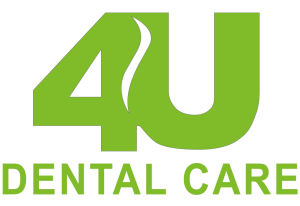Ever since we were kids, we were taught about the importance of good oral hygiene and how important it is to brush your teeth. But what if you don’t do that? Well, there is a huge possibility that you can witness plaque buildup that will adversely affect your overall dental health. The question is why and how exactly does it happen, how can a dentist in Aurora, ON help you? Don’t worry! We will guide you all about plaque buildup. Let’s begin!
What Is Plaque and How Is It Formed?
Ever noticed a sticky thin layer around your teeth? Oh well, it’s the plaque! You can feel it by simply moving your tongue over the teeth. It is usually prominent when you don’t brush your teeth. The plaque is formed due to bacteria that are present inside the mouth. What’s more interesting is the fact that even if you brush your teeth twice a day, bacteria can persist in your mouth. It is really important to understand that food particles usually get stuck in your mouth and further encourage plaque buildup. So, in short, everyone develops plaque, and the only way to protect your gums and teeth is by maintaining good oral hygiene and regularly visiting a dentist near you.
Why is it Important to Remove Plaque?
Plaque if not removed can lead to several dental as well as overall health problems. Here are a few problems that might arise due to plaque buildup.
Morning Breath
Ever noticed bad breath when you wake up in the morning? Well, it happens simply because of the nightly buildup of the plain. So? Make sure you brush in the morning and before hitting the bed, to control the plain formation.
Chronic Bad Breath
Do you experience bad breath even after brushing your teeth? It’s a clear sign of chronic bad breath. This usually happens when the plaque is hardened or you are not brushing the right way.
Gum Disease
Of course, the gum is part of the mouth only. It makes it quite prone to plaque accumulation along the gum line which can further damage the whole hum. It will eventually lead to developing gum diseases or even severe periodontal disease.
Overall Health Problems
Apart from dental problems, plaque buildup and gum diseases can also cause several non-dental problems. Some of the health risks associated with plaque buildup are:
- Diabetes
- Rheumatoid arthritis
- Heart disease
- Premature birth
Always keep in mind that plaque when not removed can harden up and turn into tartar. While there are several home remedies to treat plaque buildup, we highly recommend that you must pay a visit to reputed dental care in Aurora, ON
Get tartar Removal Done
If you are facing any tartar formation on your teeth, bad breath etc, then make sure you visit 4U Dental Care. No matter what dental concern you have, these experts will not only guide you but provide you with the best solutions. So, it’s time to book an appointment with a dentist near you. Explore the website to know more details of our services.
FAQ’S
 How do you spell plaque for a wall?
How do you spell plaque for a wall?
A plaque is a flat piece of metal or stone with writing on it which is fixed to a wall or other structure to remind people of an important person or event. The First Lady unveiled a commemorative plaque.
 What are examples of plaque?
What are examples of plaque?
- Minerals form dental plaque around the teeth as a result of bacterial action on food particles. …
- Cholesterol is a key component in plaques on the inner walls of blood vessels and can lead to blood clot formation.
 How do you remove plaque?
How do you remove plaque?
Brushing and flossing twice a day is the best way to remove plaque and keep your teeth and gums healthy.
